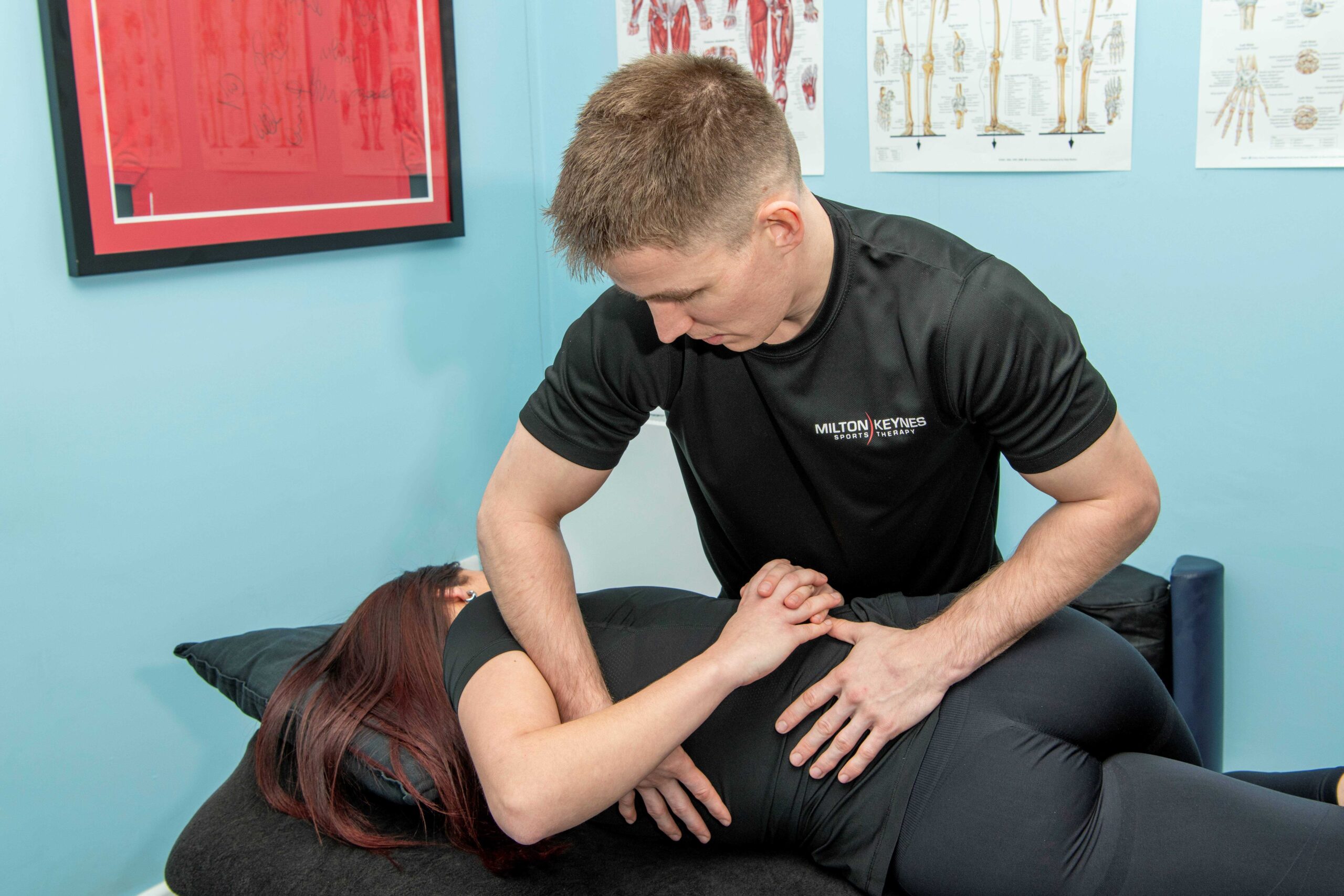FAQs
What is the difference between a sports therapist and a physiotherapist?
Sports therapy and physiotherapy share some similarities but are distinct in their focus. Sports therapy focuses on treating sports-related injuries, rehabilitation, and optimising athletic performance, including injury prevention. Sports therapists often work with athletes and active individuals.
Physiotherapy, on the other hand, has a broader scope, addressing a wide range of conditions such as neurological rehabilitation, orthopaedics, respiratory therapy, and geriatrics. Physiotherapists treat a broader patient base, including those recovering from surgery, accidents, or chronic conditions.
While there is overlap in the skills used by physiotherapists and sports therapists, both professions complement each other and work together to achieve the best results for patients dealing with musculoskeletal issues and injury recovery.
Where do I go when I arrive at the gym?
When you arrive for your appointment at Milton Keynes Sports Therapy, head to reception, where our friendly staff will greet you. After informing them about your appointment, they will buzz you through the gate. Take a seat, and once your therapist is ready, they will escort you to the treatment room for your rehabilitation or sports therapy session.
How can I pay?
We accept a variety of payment methods, including cash, card (including AMEX), and bank transfers when paid in advance. Our session prices range from £35 for a 30-minute sports therapy treatment to £65 for an hour session with our senior sports therapist.
How frequently should I do my exercises?
The frequency of your rehabilitation exercises depends on the specific instructions provided by your therapist. Regular exercise is essential for recovery, along with proper rest. It is vital to follow the recommended frequency to ensure you are making progress and maximising the benefits. If you experience pain or notice worsening symptoms during your exercises, be sure to stop and contact your sports therapist for further guidance.
I have an injury, do I need to book an appointment?
If you’ve suffered a recent injury, it is important to get in touch with one of our sports therapists. For acute injuries (first 72 hours), following the POLICE principles (Protection, Optimal Loading, Ice, Compression, Elevation) is recommended. During this stage, avoid anti-inflammatory medications like ibuprofen, as they can delay the healing process. It’s also best to avoid sports massage in the acute phase, as it may exacerbate the injury. Reach out to an experienced therapist for guidance on how to manage and treat your injury properly.
What is the difference between a sports massage and a deep tissue massage?
Both sports massage and deep tissue massage involve applying pressure to muscles to alleviate pain and promote healing, but they differ in focus. Sports massage is designed to improve athletic performance, prevent injuries, and aid recovery. It is often used by athletes to enhance flexibility and mobility.
Deep tissue massage focuses on relieving chronic muscle tension and targeting deeper muscle layers. It is typically used to treat chronic pain, stiffness, and injury recovery. While there is overlap between the two, the choice depends on your specific needs and recovery goals.
How do I make an appointment?
Booking an appointment at Milton Keynes Sports Therapy is easy via our online booking system. If you cannot find a suitable time, contact us directly, and we will make every effort to accommodate your schedule.
Do I need to book a sports massage or a sports therapy appointment?
If you simply need a sports massage or deep tissue massage without any existing injuries, a sports massage is likely sufficient. The session length depends on the area being treated. For example, 30 minutes is ideal for specific areas like the calves or neck and shoulders, while an hour is suitable for a full-body massage.
However, if you have an existing injury, require a personalised rehabilitation plan, or would like additional treatments, a sports therapy appointment is the better choice. If you’re unsure, sports therapy is always the most comprehensive option.
I’m scared of needles, is acupuncture for me?
If you’re nervous about needles, acupuncture may not be the best option. Medical acupuncture works by releasing feel-good hormones like serotonin, dopamine, and oxytocin, which can help relax muscles and reduce pain. However, when stressed or anxious, the body releases cortisol, which can have the opposite effect.


